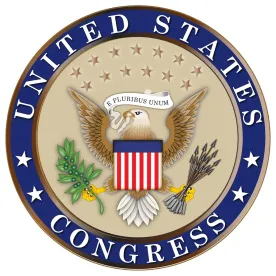The Senate Health, Labor and Pensions (HELP) Committee on March 22, 2017, held confirmation hearings on the nomination of R. Alexander Acosta, President Donald Trump’s pick for Secretary of Labor.
Acosta was introduced by Senators Marco Rubio and Ted Cruz, both of whom have known Acosta for years. Rubio described Acosta as having a “brilliant legal mind” with “deep knowledge of labor issues,” and noted Acosta was the first member of his family to attend college. Cruz, who attended law school with Acosta, emphasized that Acosta has been confirmed by the Senate three times and, as the son of Cuban immigrants, has a special appreciation of freedom and opportunity in the United States. Both encouraged the Senate to approve his nomination. (For more on Acosta’s background, see our article, Labor Department Nominee’s Opinions as National Labor Relations Board Member.)
Some of the first questions from the Committee centered on the Department of Labor’s controversial overtime rule, which was blocked by a federal district court judge in Texas and is on appeal at the U.S. Court of Appeals for the Fifth Circuit. The government’s final brief is due May 1, 2017, pushed back from an earlier deadline to allow the new administration to express its view. (For more on the litigation, see our article, Texas Court Grants Nationwide Preliminary Injunction Enjoining Department of Labor from Implementing or Enforcing Regulation Raising Salary Level for White Collar Exemptions.)
While Acosta did not specify what position he would take on the overtime rule, he acknowledged that the salary level for exempt employees has not been updated since 2004. He also said that it is “unfortunate” that rules that include dollar values often are not updated more regularly. However, he said he was concerned that the doubling of the salary threshold “creates a stress on the system.”
With respect to the DOL overtime litigation, Senator Patty Murray bluntly asked, “Will you defend this rule in court?” Acosta did not answer the question directly, but stated he will need to “look at this very closely.” Interestingly, he noted that one of the issues pending in the litigation is the authority of the Secretary to set a salary threshold. “Litigation needs to be considered very carefully both with respect to what would be the appropriate amount if the rule were changed or revised, but also what is in the authority for the Secretary to do,” he said.
In later questioning, Acosta noted that if the current salary level is increased based on a cost of living increase, the salary level would be about $33,000, perhaps signaling DOL will recommend a new rule that lowers the salary level set up by the Obama Administration. It is unclear whether the salary level would be a requirement or simply a factor in determining exempt status, in light of the current litigation questioning the authority of the Secretary to set a salary level threshold. Acosta stated he would consult with Labor Department and Department of Justice employees in considering what steps to take.
Acosta also was asked about the Department of Labor’s Wage and Hour Division’s former practice of issuing opinion letters in response to employers’ specific questions about certain laws and regulations. Acosta noted he saw “value to opinion letters” that are grounded in a specific set of facts and he saw no reason for not encouraging the issuing of opinion letters, perhaps signaling the Department of Labor may look to re-implement this practice.
Many of the questions focused on Acosta’s position on health and safety issues, as well as job training programs. Senator Elizabeth Warren repeatedly asked him whether he would enforce the silica rule. Acosta stated that pursuant to President Trump’s Executive Order to reduce the number of regulations, he would work with the Department of Labor to review the implementation and enforcement of these rules and regulations. (For more on the rule, see our article, OSHA’s Long-Awaited Silica Rule Faces Uncertain Future.)
Similarly, with respect to cutting the Occupational Safety and Health Administration’s budget, Acosta stated that “worker safety is important” and while he could not commit to maintaining the current levels of funding for OSHA, he would be concerned about any cuts that would affect OSHA’s ability to do its job. Generally, Acosta did not comment on specific regulations, but noted his overall philosophy would be to eliminate any regulation that is not “serving a purpose.”
Acosta also answered questions about job training and apprenticeship programs. He praised the use of apprenticeship programs and the importance of involving employers and other industry associations in the process of creating and implementing these programs. He also noted the Department of Labor should take a leadership role in compiling best practices for these programs.
Acosta also was asked generally about his views on the proposed cuts to the Department of Labor’s budget. He stated that while he has not had the opportunity to provide input on the budget process, he personally does not believe in implementing either an across-the-board cut to the Department or a per se elimination of programs. Rather, he would look at how successful specific programs are in each state and determine what aspects of programs to cut based on how well they work on a local level. He used the example of Job Corps centers, noting that some centers are very successful in certain states and funding should be maintained for these centers, whereas funding for less successful centers should be reduced and directed to other more successful programs in those areas.
The final questions posed to Acosta involved his views on the definition of joint employer. HELP Committee Chair Senator Lamar Alexander expressed concern about the negative impact the National Labor Relations Board’s definition of joint employer will have on the franchisor-franchisee relationship, causing franchisors to decide to do business by themselves, rather than through franchisees. Alexander asked Acosta whether a business that has direct and immediate control over its employees should be considered an employer. Acosta answered that direct and immediate control are traditional criteria. Alexander also asked whether indirect and unexercised control should be factors in determining whether employers are joint employers and Acosta answered that those are untraditional factors.
Alexander submitted into evidence 19 letters of support for Acosta from 85 groups, including some labor unions. Murray submitted into the record 15 letters from 105 organizations expressing concern with Acosta’s nomination.






 />i
/>i

